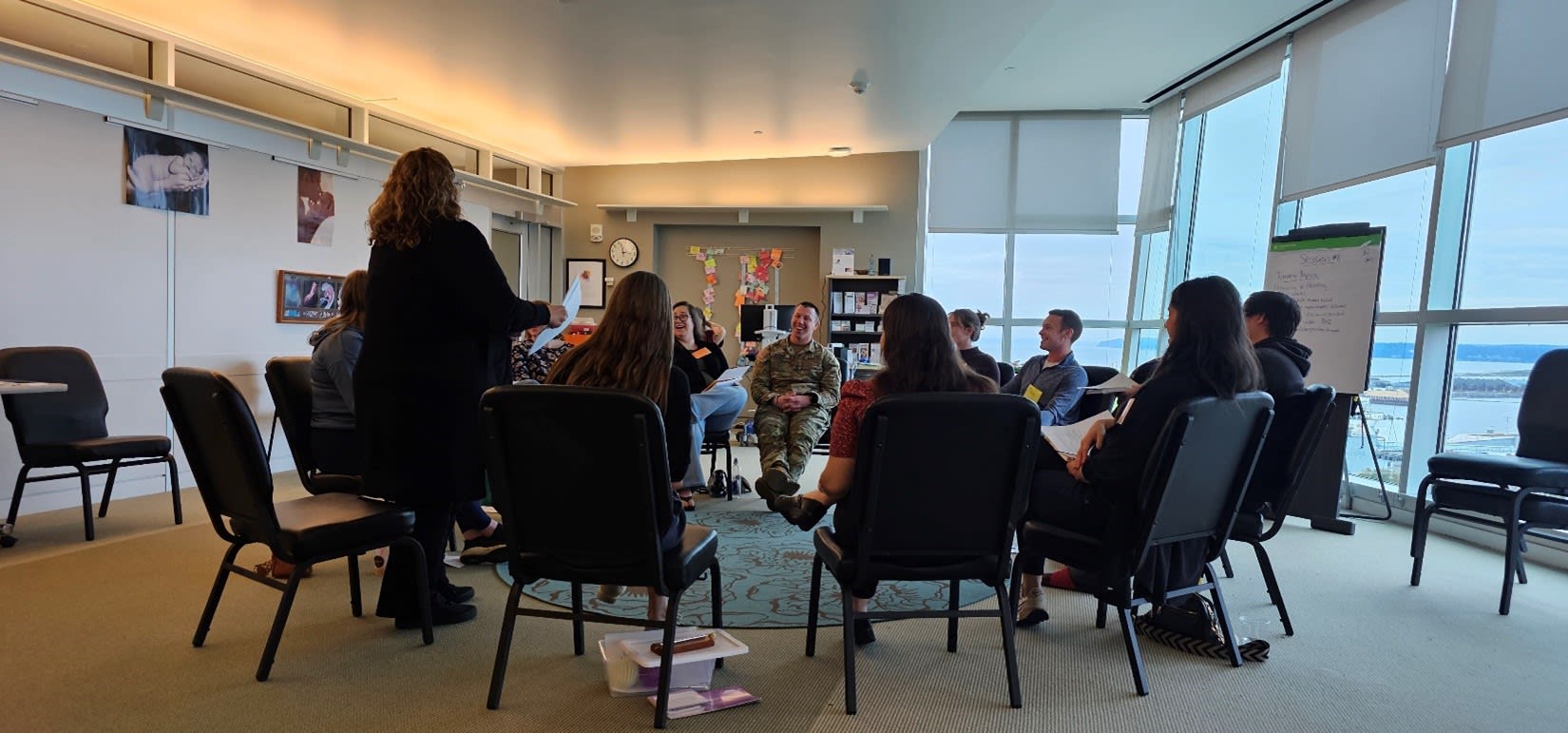Shining a spotlight on health literacy and minority health
[5 MIN READ]
In this article:
-
At Providence, we believe everyone deserves the highest quality care, no matter their race, ethnicity, gender identity, sexual orientation or other characteristics that make them an individual.
-
Yet marginalized communities face unprecedented inequities that often lead to disparities in access to care.
-
Providence has started several programs across the system that reduces inequities in health care availability and treatment and health outcomes.
At Providence, we believe everyone deserves the highest quality care. Yet marginalized communities face unprecedented inequities that often lead to disparities in access to care. This National Minority Health Month, we’re raising awareness about some of the main health inequities and challenges socially and economically marginalized communities face, and the ways in which we are working to address those challenges.
Increasing health literacy
Health literacy is one important strategy for reducing disparities and building equity among marginalized communities. “Personal health literacy” refers to how well people can find, understand and use information to make health-related decisions for themselves and others. Organizational health literacy is the degree to which health care providers enable people to find and understand that information.
It is estimated that only 14% of the U.S. population has proficient personal health literacy.
This means that most of the time, patients do not fully understand what their doctors are saying to them, which can cause significant problems during their treatment. Not only are they unclear about what their providers are communicating, but they also may not understand why they should undergo certain important health screenings.
Healthy People 2030, an initiative sponsored by the U.S. Department of Health and Human Services (HHS), identifies five important facts about health literacy:
1. Organizations can improve their health literacy by using specific strategies. These strategies include answering questions in simple, non-medical language, and testing written materials with the audiences they want to reach.
2. We should act as though anyone is at risk of misunderstanding information. While older people and ethnic minorities who are not fluent in English face the biggest challenges, many other people may have challenges understanding what tests they need and what the results of those tests mean.
3. Providers can use health literacy strategies to encourage people to take part in decisions about testing, treatment and procedures. This helps people make health care decisions that fit their personal values and goals.
4. Providers should practice clear communication with their patients. It is important that they check to make sure patients understand everything about what they just learned.
5. Being health literate can help people achieve their goals. Those goals can include managing a chronic condition such as diabetes or chronic obstructive pulmonary disease (COPD) or taking steps to avoid getting sick in the first place.
Addressing health equity community relationship building
For many years, Providence has been engaged with initiatives to help improve access to care within marginalized communities. In March, we launched an initiative in coordination with the Stand Up to Cancer Colon Cancer Screening program, which has formed community partnerships within select zip codes to activate Community Health Action Teams (CHAT) to promote colorectal cancer screening in Black and Hispanic communities.
As part of these efforts and in collaboration with more than 30 pastors from the Los Angeles community, Providence launched the Speak Life campaign. This photographic art exhibit features powerful images of area faith leaders uniting their voices to “speak life” into the community — promoting the knowledge that colon cancer is beatable and treatable. This powerful art will be on exhibit on the third-floor walkway (directly above the atrium entrance) of St. John’s Health Center April 10-16th.
Educating about COVID-19
Throughout the course of the COVID-19 pandemic, studies have shown that people of color have experienced a disproportionate number of cases and deaths. There are many reasons for this, one of which is that minorities are less likely to have a proficient health literacy about how to protect themselves and others from COVID-19. Even if they do have that knowledge, they may have fewer resources that would enable them to take precautionary measures.
Providence has been working to reduce that inequity over the last three years. One example is the Community Health Work program. In the program, Community health workers live in the communities they serve and speak the language of that community. They meet patients anywhere they are comfortable — on the street, at the library or in the grocery store.
These trusted members of the community have been able to distribute accurate public health information about both COVID-19 and the vaccines that will protect the people they serve. They offer COVID-19 vaccines, supplies and testing for free, and they help community members learn where they can receive the medical care they need.
Latino community outreach
Another way in which Providence is making strides toward health equity is through the Paso a Paso (Step by Step) program at St. Joseph and Redwood Memorial Hospitals. The program offers free health education in Spanish to the Latino and Hispanic community.
Paso a Paso has expanded greatly over the past decade and a half, and now offers:
- Parent classes, including childbirth education, newborn and postpartum care, lactation, infant massage, parenting and car seat safety.
- Garden and nutrition activities, such as the Seed to Supper classes, which show families how to successfully grow some of their own food on a limited budget.
- Support groups for families to connect, including a support group for families with kids who have special needs and a postpartum support group.
- Home visits or e-visits for families who need individual support, referrals, and help with navigating the health care system.
- Attachment Vitamins classes, which teach parents about the importance of early emotional development and the effects of stress and trauma.
- Community events, family picnics and walks that support health and connection.
These outreach efforts are so important to helping people become fully informed about their health care choices — and are able to take ownership of their treatment.
--
Find a doctor
If you’re looking for a Providence primary care provider, you can find one using our provider directory.
Download the Providence App
We’re with you, wherever you are. Make Providence’s app your personalized connection to your health. Schedule appointments, conduct virtual visits, message your doctor, view your health records and more. Learn more and download the app.
Related resources
Careers in health care for students of color
The importance of racial equality in health care
Don’t be afraid to seek mental health care
This information is not intended as a substitute for professional medical care. Always follow your health care professional’s instructions.



